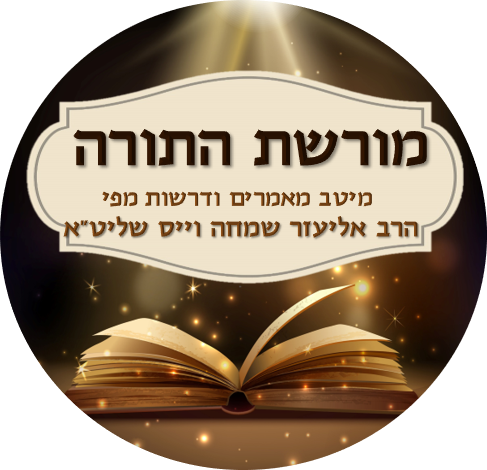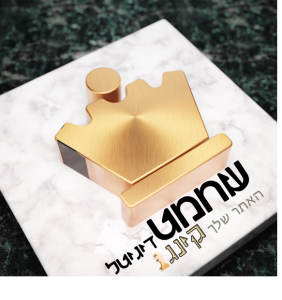PITY THOSE WHO NEVER GOT THE WORDS
The world was created in ten utterances.(Pirkei Avot Ethics of the Father, Chapter 5-1). On the first day of creation God simply spoke and said, “Let there be light” and there was light. On the second day God said, “Let there be an expanse” and there was an expanse. On the third day God spoke again and what He spoke came into existence, and so forth. Now therefore, what did God use to create everything that is in the world? God used nothing except His Word! All He did was speak, and what He spoke came to pass. God created everything by His Word.
The story of creation of the world presented in Bereshisit- Genesis is not intended to be a scientific account of the actual creation of the world, but does teach us significant moral insights. Among the moral teachings it has for us is an incredible example of the power of words.
God’s tool of creation was language, and language is also a way we create or destroy our personal worlds and lives.
Bereshit Ch. 1:26 tells us that we were made in God’s image. Our tradition teaches that one way in which this is so, is that we have the power to choose our actions. We can choose how we use our ability to speak—we can choose to use our voices in constructive rather than in destructive ways. We can command our words and take charge of them.
We are told that “Life and death are in the power of the tongue” (Proverbs Ch. 18: 21). The creative force of God’s voice and the destructive force of lashon ha-ra (gossip, evil tongue) are irreconcilable.
Throughout Parashat Bereshit (Portion of Genesis Ch. 1-5), speech, the same tool God used to create the universe, is repeatedly used by people in ways, which, in contrast to God’s use, are anything but constructive. Individuals use words to make excuses, rather than holding themselves accountable for their own actions.
For example, Adam blames Eve: “The woman You gave to be with me – she gave me of the tree, and I ate” (Bereshit 3: 12). Similarly, after eating the fruit from the Tree of Knowledge of Good and Evil, Eve blames the snake. “The serpent deceived me, and I ate” (Bereshit 3:13). Later on in the Parashah, Cain deflects God’s question about Abel with a question of his own: “Am I my brother’s keeper?” (Bereshit 4:9).
More often than not, our problem is that we don’t communicate, we don’t speak to each other, there is no exchange of conversation, only a dialogue of the deaf with no one listening to the other. The supreme example of this is found in Bereshit. There, we read: Vayomer Kayin el Hevel ahiv, vayehi bihyotam basadeh, vayakam Kayin al Hevel ahiv vayahargenu, that is, “Cain said to his brother Abel … and when they were in the field, Cain set upon his brother Abel and killed him.”
The word “vayomer” means “to say”. You can’t just “say,” you have to say something. Yet in the Hebrew text there is no indication of content. Upon reading it is as if words are missing. What did Cain say to Abel? The Torah doesn’t tell us. Apparently, it is irrelevant because whatever he said was obviously not communicated to the other party. There was no dialogue, no conversation between them and this lack of dialogue ended in murder.
Another implication of being created in God’s image is that each person is a reflection of the sacred image of God. When we look at others we should see that Divine image reflected back. Our Sages state that one who embarrasses a person publicly denies his or her own share in the “World to Come” (Pirke Avot 3:15). Unfortunately, it is all too easy to embarrass a person publicly, sometimes in the guise of being helpful. It can be tempting to seize an opportunity to demonstrate our own knowledge at the expense of another. To abuse, neglect or otherwise harm another person is to act destructively toward God’s creation and thereby, towards God. Words are often the agents of this harm.
I am sure most of us have found ourselves at one time or another in the uncomfortable position of wishing we could grab back our words and swallow them. One of those horrible moments when you can almost see them float out of your mouth in a speech bubble, but you know you can’t get them back.
We know our words, once uttered, develop a life of their own.
Most of us know the story about Yentel,[Yente Yiddish for busybody: somebody, often a woman, known as a meddler or a gossip]the old woman who talked and talked, embroidering her tales a bit here and there and perhaps making up something when she really didn’t have anything to say. When she sadly found that many of the people in her shtetl would no longer talk to her, she went to her Rabbi and asked for help. He told her he could help her and instructed her to go and bring him her largest feather pillow. He then instructed her to stand outside and cut it open. Of course the feathers flew everywhere. She reported that she had done as she had been instructed and inquired if that was it. “No”, the Rabbi said—“Now go and pick up the feathers.”
Words should be only used if they are words of wisdom and even then we must be careful of their use. Maimonides, Laws of De’os – Chapter 2, Law 4 (end) “A person should always accustom himself to keeping silent… So too regarding words of Torah and wisdom. The words of the scholar should be few and their content much. This is as the Sages instructed: ‘One should always teach his student in a succinct manner’ (Talmud Pesachim 3b). Conversely, many words of little content is foolishness. Regarding this the verse states, ‘For the dream comes through an abundance of matters, and the voice of a fool is in many words’ (Kohelet Ecclesiastes 5:2)”.
King Solomon said, ‘The words of the wise, [when spoken] with gentleness, are heard’ (Kohelet 9:17). Sometimes it is so important to hear the right words and we can pity those who do not hear them.
The greatest gift we can give or receive can be words as demonstrated in the following poem.
All I Got Was Words
by: Unknown
( Yiddish in Italics)
When I was young and fancy free
My folks had no fine clothes for me.
All I got was words.
Gott tsu danken. (Thank God.)
Gott vet geben (God will provide.)
Zol men nor leben un gezunt zein.
(May we only live and be healthy.)
When I began to travel far
They couldn’t provide me with a car.
All I got was words.
Gey gezuntereit (Go in good health.)
Gey pamelach (Go slowly.)
Hob ah glickliche reize.
(Have a successful trip.)
I wanted to increase my knowledge
But they couldn’t afford to send me to college.
All I got was words.
Hob seichel (Have good sense.)
Zei nisht kein nar (Do not be a fool.)
Torah iz de beste schoireh
(Torah is the best merchandise.)
The years have flown, the world has turned
Things I’ve forgotten, things I’ve learned.
Yet still I remember,
Zog dem emmes (Tell the truth.)
Geb tzedakah (Give charity.)
Hob rachmonus (Have compassion.)
Zei ah mentsch (Be a mentsch.)
ALL I GOT WAS WORDS
PITY THOSE WHO NEVER GOT THE WORDS


 שחמט דיגיטל
שחמט דיגיטל